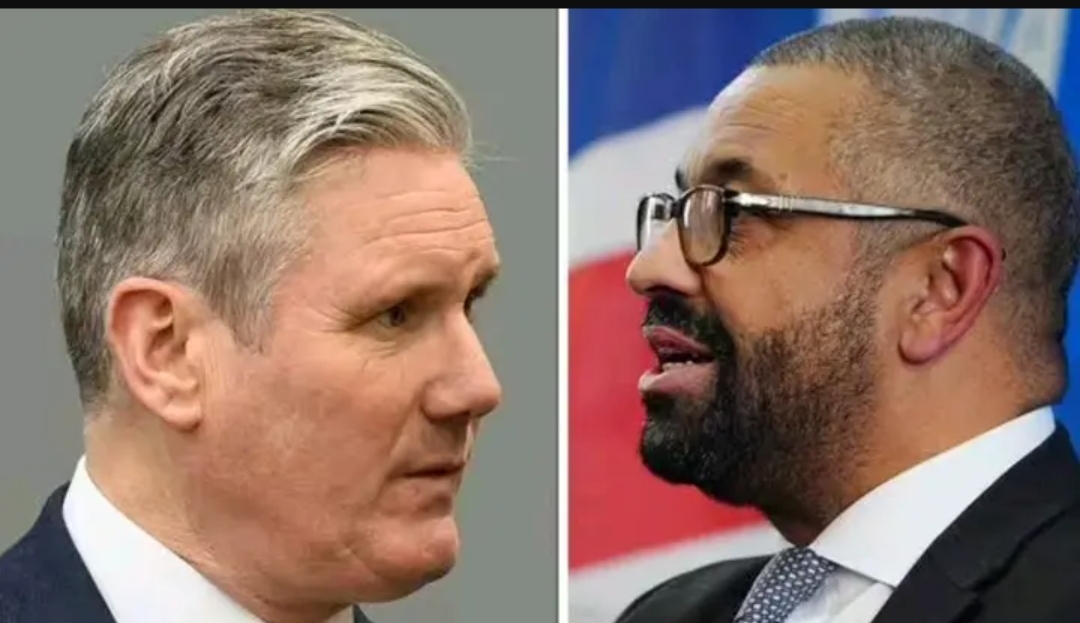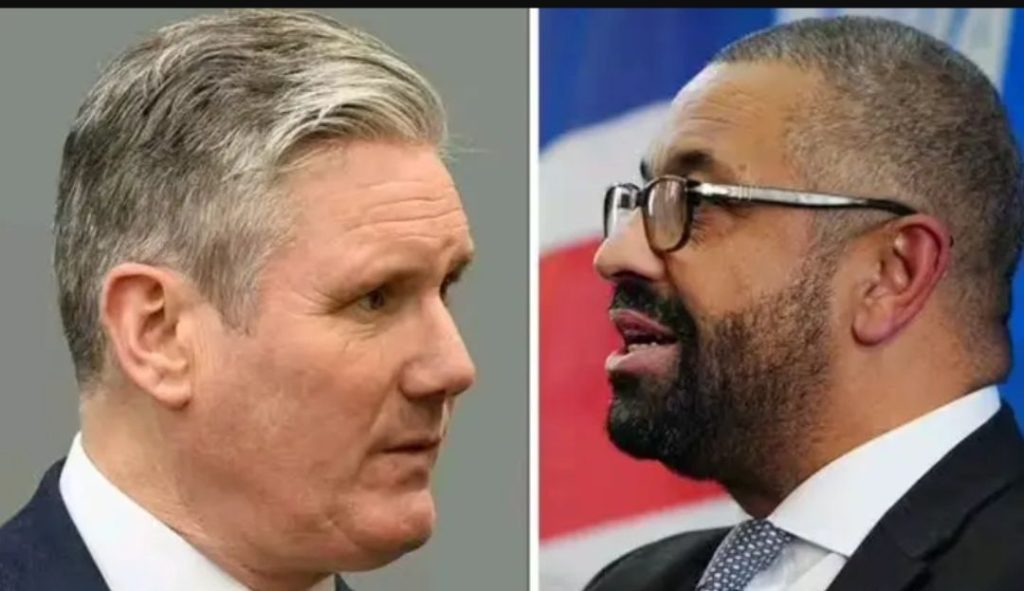
Foreign Secretary James Cleverly has ignited a heated debate by accusing Labour leader Keir Starmer of harboring intentions to allow tens of thousands of illegal migrants into the UK if he assumes the role of Prime Minister.
Cleverly asserts that Starmer’s immigration policies would essentially throw open Britain’s borders, criticizing the Labour leader’s perceived lack of a coherent vision for a post-Brexit Britain.

In a pointed remark, Cleverly highlighted Starmer’s shifting stance on Brexit, pointing out his evolution from supporting remain to advocating for a second referendum and eventually aiming to ‘rebuild’ ties with the EU. According to Cleverly, this trajectory signals an alarming willingness to embrace free movement, posing a potential threat to the nation’s immigration controls.
According to reports by Express, Cleverly contends that Starmer’s emphasis on strengthening relations with the EU implies a desire to return to free movement.
The Foreign Secretary cautioned that such a move would lead to the unraveling of the carefully crafted post-Brexit immigration system, particularly the points-based system designed to give the UK greater control over who enters the country. Drawing a historical parallel, Cleverly reminded the public of Starmer’s role in the Blair government, which saw the entry of two million people into the UK.
The Labour Party swiftly dismissed Cleverly’s accusations as “nonsense” and redirected attention to what they see as the Conservative government’s failure to address the small boats crisis effectively. A Labour spokesperson went further to suggest that the Conservatives were resorting to baseless claims due to their inability to articulate sensible solutions to the immigration challenges facing the nation.
The political skirmish comes as Starmer gears up for a meeting with French President Emmanuel Macron to discuss closer cooperation on managing migration flows. This move has not been without controversy, with some Conservative politicians accusing Starmer of cozying up to what they label a “massive Europhile.”
The timing of this war of words is significant as net migration to the UK reaches record levels, setting the stage for immigration policy to become a focal point in the upcoming general election. Cleverly’s intervention is indicative of the Conservative Party’s strategy to challenge Labour’s position, asserting that Starmer cannot be trusted when it comes to maintaining effective borders and immigration control.
As the two major parties engage in this battle over borders, the public will be closely watching how each side navigates the complex terrain of immigration policy. With the next general election on the horizon, the outcome of this political clash could significantly influence voters’ perceptions of the parties and their leaders on the critical issue of national borders and control over immigration.




